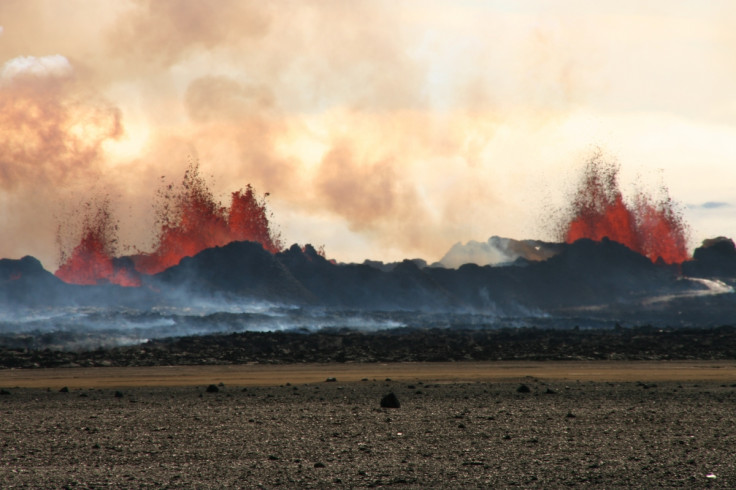Volcanic eruptions wouldn't have been as devastating to dinosaurs as previously thought

The role that volcanic eruptions played in the extinction of the dinosaurs may have been blown out of proportion, according to new research. Volcanic activity that propelled gas and dust into the atmosphere, which would have dramatically changed the climate, along with the Earth being hit by asteroids, are the among the strongest theories as to why the giants may have died out.
However, the effect of sulphur dioxide released to the atmosphere from continental flood basalts had remained uncertain - until now. Researchers from the University of Leeds used a computer simulation to study the spread of sulphur dioxide and aerosol particles, which showed that the continental flood basalts were not as devastating as first thought.
Study lead author Dr Anja Schmidt, from the University's School of Earth and Environment, said: "At the time when the dinosaurs reigned, numerous long-lasting eruptions took place over the course of about a million years. These eruptions, called 'continental flood basalts' were not like volcanic eruptions we often see today, with lava gushing from the ground like a curtain of fire.
"Each eruption is likely to have lasted years, even decades, and eruptions were separated by periods without volcanic activity. The lava produced by an eruption of average intensity would have filled 150 Olympic-size swimming pools per minute."
They discovered that the flood basalts would have needed to seep into the atmosphere for hundreds of years for it to have had a severe impact on vegetation and wildlife. Additionally, they noted that while the Earth would have cooled by 4.5C as a result of the eruptions – it would have returned to normal after 50 years, according to the study published in Nature Geoscience.
"Perhaps most intriguingly, we found that the effects of acid rain on vegetation were rather selective. Vegetation in some but not all parts of the world would have died off, whereas in other areas the effects would have been negligible," said Dr Schmidt. "We now need to better understand how long both the individual eruptions and the periods without volcanic activity lasted."
© Copyright IBTimes 2024. All rights reserved.






